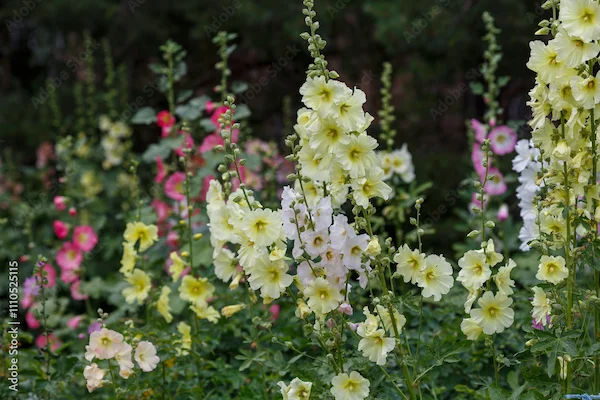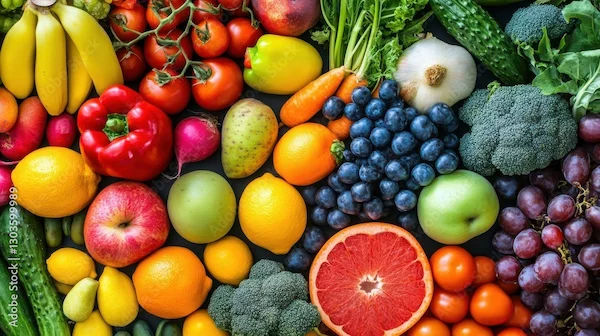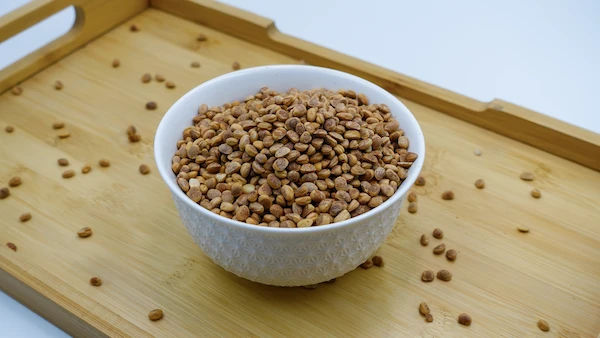Benefits Of Shallaki (Boswellia serrata)
Discover the benefits of Shallaki (Boswellia serrata), a powerful Ayurvedic herb known for supporting joint health, reducing inflammation, and promoting overall wellness.

Written by Dr. Sonia Bhatt
Last updated on 3rd Jul, 2025

Introduction
Joint pain, inflammation, and stiffness can make everyday activities challenging. If you're looking for a natural way to manage these issues, Shallaki (Boswellia serrata) might be the answer. This ancient herb has been used in Ayurveda for centuries to support joint health, reduce inflammation, and improve mobility. In this article, we’ll explore the benefits of Shallaki, how it works, and simple ways to incorporate it into your daily routine for better health.
What Is Shallaki?
Shallaki, also known as Indian frankincense, is a resin extracted from the Boswellia serrata tree. It has been a key ingredient in Ayurvedic medicine for treating joint pain, arthritis, and inflammatory conditions. Modern research supports its effectiveness in reducing pain and swelling, making it a popular natural remedy.
Key Benefits of Shallaki
Some of the key benefits of Shallaki are:
1. Relieves Joint Pain and Arthritis: Shallaki is best known for its ability to reduce joint pain and stiffness, especially in conditions like osteoarthritis and rheumatoid arthritis. The active compounds in Shallaki, called boswellic acids, block inflammation-causing enzymes, providing relief without the side effects of long-term painkiller use.
2. Reduces Inflammation: Chronic inflammation is linked to many health issues, including arthritis, asthma, and digestive disorders. Shallaki helps lower inflammation by inhibiting pro-inflammatory molecules, making it beneficial for inflammatory conditions.
3. Supports Digestive Health: Shallaki has been traditionally used to improve digestion and gut health. It helps manage conditions like ulcerative colitis and irritable bowel syndrome (IBS) by reducing gut inflammation and promoting healing.
4. Enhances Respiratory Health: If you suffer from asthma or bronchitis, Shallaki may help. Its anti-inflammatory properties can ease breathing difficulties by reducing airway inflammation.
5. Promotes Skin Health: Shallaki’s healing properties also benefit the skin. It helps with psoriasis, eczema, and wound healing by reducing redness and irritation.
6. May Help in Cancer Prevention: Early studies suggest that boswellic acids in Shallaki may have anti-cancer properties, particularly in slowing the growth of certain tumours. However, more research is needed in this area.
Consult Top Specialists for Personalised Usage Tips
How to Use Shallaki for Best Results?
Shallaki is available in different forms, including:
Powder (mixed with water or honey)
Capsules/Tablets (for easy consumption)
Oil (for topical application on joints)
Lifestyle Tips to Enhance Shallaki’s Benefits
To maximise the effects of Shallaki, consider these healthy habits:
Stay Active: Gentle exercises like yoga and walking can improve joint flexibility.
Eat an Anti-Inflammatory Diet: Include turmeric, ginger, leafy greens, and omega-3-rich foods.
Maintain a Healthy Weight: Excess weight puts pressure on joints, worsening pain.
Stay Hydrated: Water helps keep joints lubricated.
Avoid Processed Foods: Sugar and fried foods can increase inflammation.
Possible Side Effects & Precautions
Shallaki (Boswellia serrata) is a widely used Ayurvedic herb known for its anti-inflammatory and pain-relieving properties, especially in managing joint and muscular conditions. While it is generally considered safe for most individuals, certain side effects and precautions should be kept in mind to ensure its responsible use.
1. Possible Side Effects
Though uncommon, some individuals may experience mild side effects, including:
Stomach discomfort: such as bloating, acid reflux, or nausea, particularly when taken on an empty stomach.
Skin rash or itching: may occur in people with an allergy to Shallaki or related plants.
Blood-thinning effects: Shallaki may have a mild anticoagulant action, which could increase the risk of bleeding in sensitive individuals.
2. Who Should Avoid Shallaki?
While Shallaki is safe for most, certain individuals should exercise caution or avoid it altogether:
Pregnant and breastfeeding women: Due to limited safety data, it’s best to avoid Shallaki during pregnancy or while nursing unless prescribed by a qualified practitioner.
Individuals with bleeding disorders: Shallaki's potential blood-thinning effect may worsen symptoms or interfere with medications.
People scheduled for surgery: It is advisable to stop using Shallaki at least two weeks prior to any surgical procedure to reduce the risk of excessive bleeding.
3. Precautionary Tips
Always take Shallaki with food to reduce the risk of gastrointestinal upset.
Begin with a low dose and increase gradually under supervision.
Consult a healthcare provider if you are on blood thinners or any other long-term medication.
Discontinue use and seek medical advice if you experience any signs of an allergic reaction, such as rash, swelling, or breathing difficulty.
When to See a Doctor?
If joint pain persists despite using Shallaki, or if you experience severe swelling, redness, or mobility issues, it’s best to consult a specialist. Early diagnosis and treatment can prevent further damage.
Conclusion
Shallaki offers numerous health benefits, particularly for joint pain and inflammation. However, like any supplement, it should be used thoughtfully and with proper guidance. Being mindful of the potential side effects and necessary precautions will help you enjoy its benefits safely and effectively.
Consult Top Dieticians
Consult Top Specialists for Personalised Usage Tips

Dr Darshana R
General Physician/ Internal Medicine Specialist
15 Years • MBBS, MD, DNB (Internal Medicine), Diploma in Allergy, Asthma and Immunology , Fellowship in Diabetes
Bengaluru
Apollo Clinic, JP nagar, Bengaluru
(100+ Patients)
Ms Manisha Patil
Dietician
25 Years • B.A.S.M., M Sc Food & Science and Nutrition , ADND. CCHA . PGDHM
Pune
Apollo Clinic, Nigdi, Pune

Ms. Juliet Ann Mathew
Dietician
6 Years • B.Sc, M.Sc Food & Nutrition
Bengaluru
Apollo Clinic, Electronic City, Bengaluru

Ms Suchanda Guha
Dietician
10 Years • M.Sc (Applied Nutrition), B.Sc (Food & Nutrition), Diploma (Yogic Nutrition)
Kolkata
NutriKutir, Kolkata
Ms Malabika Datta
Dietician
19 Years • Bsc (Clinical Nutrition & Dietetics), Msc (Dietetics & Food Service Management)
Kolkata
Malabika’s Diet Clinic, Kolkata
Consult Top Dieticians

Dr Darshana R
General Physician/ Internal Medicine Specialist
15 Years • MBBS, MD, DNB (Internal Medicine), Diploma in Allergy, Asthma and Immunology , Fellowship in Diabetes
Bengaluru
Apollo Clinic, JP nagar, Bengaluru
(100+ Patients)
Ms Manisha Patil
Dietician
25 Years • B.A.S.M., M Sc Food & Science and Nutrition , ADND. CCHA . PGDHM
Pune
Apollo Clinic, Nigdi, Pune

Ms. Juliet Ann Mathew
Dietician
6 Years • B.Sc, M.Sc Food & Nutrition
Bengaluru
Apollo Clinic, Electronic City, Bengaluru

Ms Suchanda Guha
Dietician
10 Years • M.Sc (Applied Nutrition), B.Sc (Food & Nutrition), Diploma (Yogic Nutrition)
Kolkata
NutriKutir, Kolkata
Ms Malabika Datta
Dietician
19 Years • Bsc (Clinical Nutrition & Dietetics), Msc (Dietetics & Food Service Management)
Kolkata
Malabika’s Diet Clinic, Kolkata




.webp)